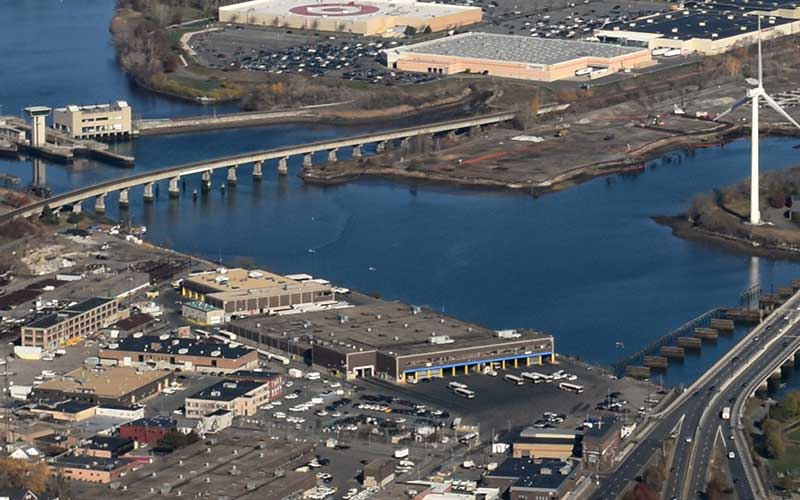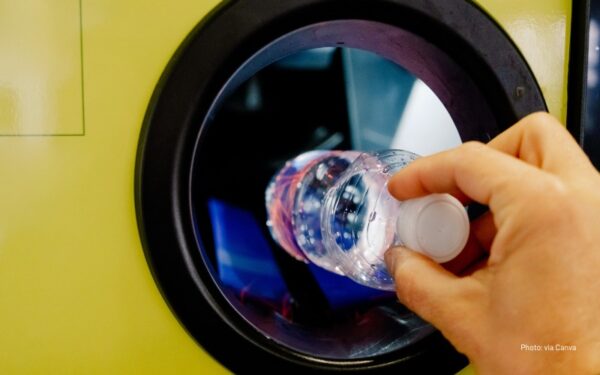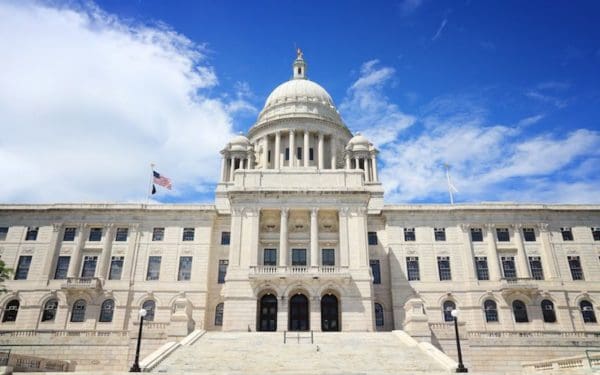
The developers of the Gateway Shopping Center (top left) are shirking their legal responsibility to provide the public with access to the Mystic River waterfront. Photo: Nick Allen (CC-BY-SA-4.0 via Wikimedia Commons)
The people of Everett deserve better. Nearly 20 years ago, DDR Gateway LLC (DDR) promised to provide greater public access to that city’s waterfront in exchange for a State license to build its Gateway Center shopping complex. The developer committed to creating a 23.5-acre riverside park, along with bike paths and other amenities that would better connect the waterfront to local neighborhoods.
Gateway Center was completed in the early 2000s, but the people of Everett were short-changed on the waterfront park they were promised. The “park” has no signage, lighting, or handicap access. Few people utilize the space or even know it’s there. Other key components of the project, including a bike path linking the park to the other side of the property, have not been built at all. This is all in clear violation of DDR’s license, and CLF is calling on Massachusetts regulators to hold the company accountable and make things right for the people of Everett.
Chapter 91 Makes Public Access to the Waterfront the Law
In Massachusetts, the public’s right to access waterfront areas is codified in a state law commonly referred to as Chapter 91. When a project, such as DDR’s shopping center, is constructed on state tidelands and interferes with that access, developers must take measures to compensate the public.
That’s why DDR’s Chapter 91 Waterways license authorizing it to build the Gateway Center – and the restaurants, parking lots, and roads that came with it – also required the developer to create a new waterfront park, with pathways, amenities, and bike paths.
In a recent letter to MassDEP, CLF highlighted the ways in which DDR is violating its obligations to the public.
- The bike path providing essential connectivity along the waterfront was never built.
- Signboards at the entrances to the park are blank. No signs welcome patrons to the park or even inform passersby that it is, in fact, a public park.
- Handicap-accessible entrances to the park dead end at solid curbs. Anyone using a wheelchair or pushing a stroller would be stranded in the middle of the street.
- The required viewing platform that would allow park patrons to enjoy views of the Mystic River was never built.
- Lighting and crosswalks that would promote public safety are either inadequate or nonexistent.
Meanwhile, across the Mystic River, Everett residents can see the high-quality public waterfront amenities at Somerville’s Assembly Row – a daily reminder of what their own neighborhood park lacks.
DDR Stands in the Way of Progress
It’s bad enough that DDR has deprived the public of its right to access the waterfront – a waterfront the public paid to clean up, by the way – for almost two decades. But it is especially problematic now because the Gateway Center abuts Wynn’s Encore Boston Harbor casino, currently under construction. Wynn also has obligations under Chapter 91, but DDR is preventing the casino from meeting them. Specifically, Wynn has offered to build the long-awaited bike path on DDR’s property itself, but the shopping center owner has been uncooperative with Wynn to date.
If Everett Were a Whiter and Wealthier Community, Would This Still Have Happened?
This waterfront park and bike path are especially critical resources for the residents of Everett and neighboring communities because there is little, if any, access to the waterfront in this area. Everett is among the Commonwealth’s most diverse communities. Of the more than 46,000 people who live there, nearly 20 percent are black and more than 20 percent are Hispanic, according to the U.S. Census Bureau. Almost 15 percent of the population is living in poverty.
One can’t help but wonder whether DDR has managed to avoid its obligations to the public for so long by taking advantage of a community that has been historically marginalized and has not had the same access to power and resources as its more affluent neighbors.
It’s Past Time for Massachusetts to Make This Right
Even if Wynn ultimately pays for the construction of the bike path, DDR must still compensate the public for building its shopping center on the Commonwealth’s tidelands. The State should also penalize the developer for ignoring its obligations under its Chapter 91 license and depriving the public of their legal rights to access and use the waterfront for nearly two decades.
As our letter makes clear, CLF is calling on MassDEP to enforce DDR’s license requirements. The public deserves a waterfront that is safe, equitable, and accessible, as promised to them under the law. It’s time to make things right for the people of Everett and Massachusetts.



